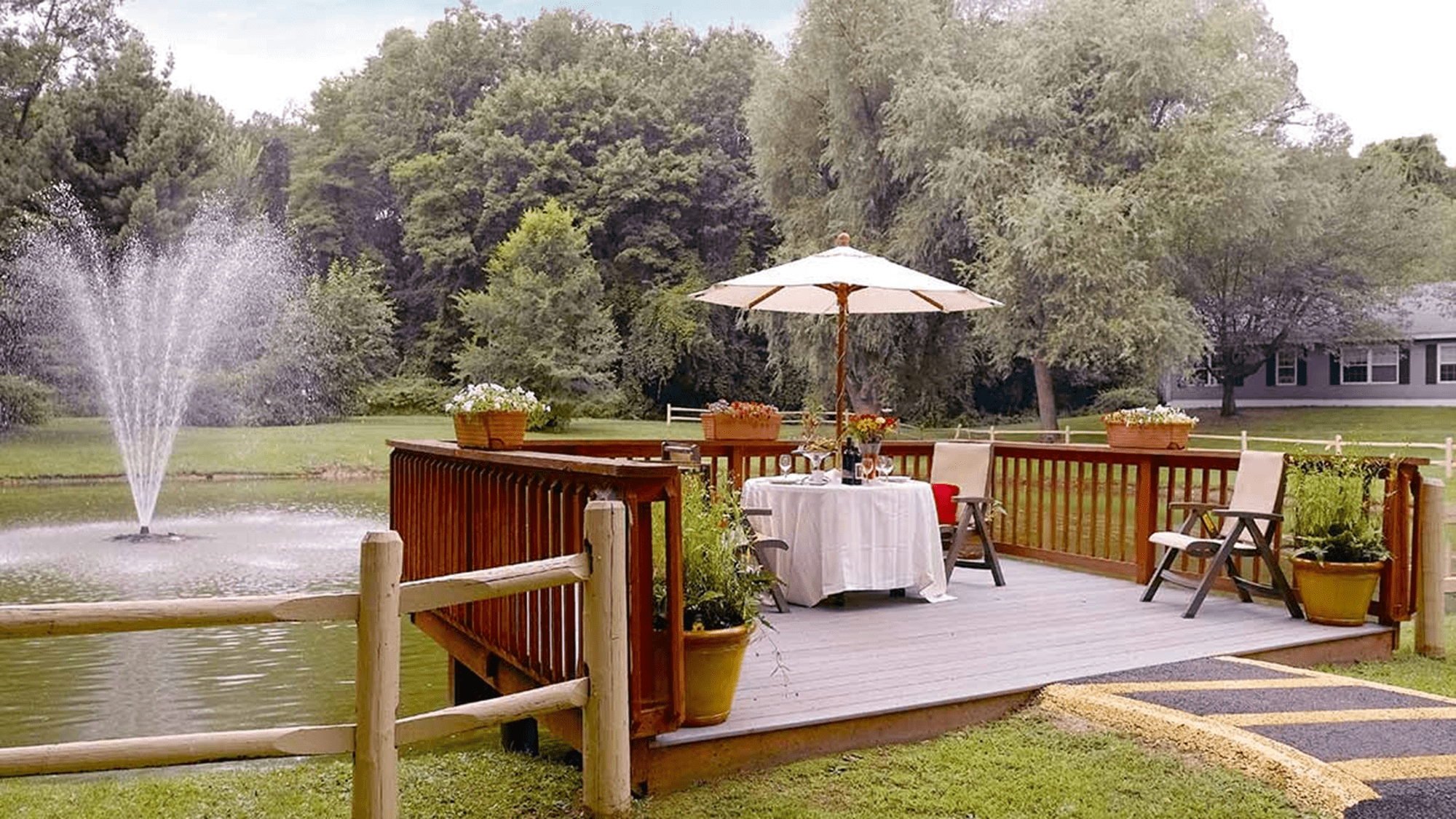Choosing an assisted living community is a meaningful decision that impacts your loved one’s comfort, safety, and quality of life. From healthcare services and daily assistance to lifestyle offerings and cost, the right questions can help you identify a place that provides not just care, but also connection and peace of mind.
Before committing to a move, families should look into how a community supports chronic conditions, what type of personal assistance is available, how meals and activities are handled, and what financial options exist. Organized, thoughtful questions can make the difference between uncertainty and clarity as you navigate this transition.
What Is Assisted Living?
Assisted living is a type of senior living designed for individuals who are mostly independent but need some support with daily activities. This may include help with bathing, dressing, grooming, managing medications, or preparing meals.
Unlike nursing homes, assisted living communities are typically residential in nature, with private or semi-private suites, communal dining, and a wide range of amenities. Residents live in a home-like environment while receiving just the right amount of assistance to help them maintain independence.
When Is It Time for Senior Living?
The decision to transition into senior living often comes after a series of small changes that build up over time. You may notice that you or a loved one is struggling with tasks like cooking, cleaning, remembering medications, or getting around safely. Maybe you’ve experienced a fall, forgotten to attend important appointments, or are feeling isolated at home.
It’s not always a single event that prompts the move—it’s often a combination of physical limitations, safety concerns, and emotional well-being.
Assisted living can be a proactive step that offers relief for caregivers and renewed energy for seniors who benefit from a more structured, connected lifestyle. Residents often find a sense of renewed purpose and freedom when their day-to-day support needs are met by caring professionals.
Understanding Care & Medical Support
What Healthcare Services Are Available On-Site?
Find out if the community offers routine check-ups, medication management, or access to on-site nurses and physicians. Ask how emergencies are handled and whether there is round-the-clock staffing to address urgent medical needs.
How Are Chronic Conditions Managed?
If your loved one lives with dementia, diabetes, heart disease, or another chronic condition, ask how the community supports these needs. Do they offer specialized care programs such as memory care or physical therapy? Confirm whether care plans are customized and regularly updated.
What Is the Staff-to-Resident Ratio?
Staffing levels can influence both care quality and response times. Ask how many caregivers are available during each shift and how the community ensures residents receive the attention they need. A lower staff-to-resident ratio often means more individualized support.
Daily Life & Personal Support
What Daily Assistance Is Provided?
Assisted living is designed to help with activities of daily living (ADLs), such as bathing, dressing, grooming, and mobility. Ask which services are included and whether staff are available 24/7. You’ll also want to know how care plans are created and adjusted as needs evolve.
Are Meals Included & Are Dietary Needs Accommodated?
Ask about the types of meals served, whether they’re prepared on-site, and how special diets—such as diabetic, low-sodium, or vegetarian—are handled. A good dining program not only provides nutrition but also fosters social connection and daily enjoyment.
Community Life & Social Engagement
What Activities & Programs Are Offered?
A robust calendar of activities can significantly enhance a senior’s well-being. Ask about recreational opportunities, including fitness classes, games, arts, cultural outings, or educational programs. Consider how the community ensures that all residents, regardless of mobility or cognitive level, can participate.
How Are Families Involved?
Family support plays a key role in emotional health. Ask about visiting policies, communication practices, and how the community involves family members in events, care updates, or decision-making. A community that welcomes family involvement helps foster a stronger support system.

Staff & Living Environment
What Training & Experience Do Staff Members Have?
Caregivers should have the proper qualifications to support residents safely and compassionately. Ask about initial training, ongoing education, and any specialized certifications, such as CPR, dementia care, or first aid. It’s also helpful to ask about staff retention and supervision.
What Types of Living Arrangements & Amenities Are Available?
Ask to view available accommodations—private rooms, shared suites, or studio apartments—and inquire as to whether residents can bring personal furnishings. Ask about amenities like outdoor gardens, fitness centers, salons, or libraries, as well as transportation for appointments or outings.
Financial Planning & Transparency
What Is the Cost Structure & Are Financial Options Available?
Understanding pricing is critical. Ask for a detailed breakdown of monthly fees and any additional charges for care services, activities, or meals. You should also inquire about financial assistance programs, such as Medicaid, long-term care insurance, or veterans’ benefits. Transparent costs help ensure the decision is sustainable for the long term.
Choosing With Confidence
The right assisted living community should provide more than just support—it should offer a sense of belonging, dignity, and well-being. Asking questions about healthcare access, daily assistance, lifestyle programming, staff training, and affordability can guide you toward the best possible fit for your loved one.
If you’re exploring options in New York, Peregrine Senior Living at Crossgate in Albany offers personalized care in a warm, welcoming environment designed to support seniors at every stage.
Contact the team to request a tour and learn more about how their community can help your loved one thrive.













Dining at our community is about more than what’s on the plate—it’s about connection, community, and the joy of gathering together.
Our talented culinary team crafts meals that are both delicious and nutritious, offering flavors that comfort and inspire.
From themed dinners to chef demonstrations, each meal becomes an opportunity to savor the moment and celebrate life’s simple pleasures. 🍴
peregrinecrossgate.com/ ... See MoreSee Less
1 CommentsComment on Facebook
🌶️ National Chili Day!
Today our Staff did a contest to see who has the best tasting chili. Oh how Yummy! 😋
Congratulations to our Maitenance Assistant, Owen! 🏆
Thank you to all who came and took a vote! ... See MoreSee Less
5 CommentsComment on Facebook
🪄 🍻 Happy Hour & Magic never went so well together!
Huge shoutout to Magic With Dave for performing a rather impressive show for our Community this past Wednesday! ... See MoreSee Less
0 CommentsComment on Facebook
☕️ 🍽️ 😃 This morning, our Activities Director Destiny and Transportation/Receptionist Jackie took our Ambassadors from Peregrine to The Scene on Western Ave in Albany for some delicious, fresh-tasting coffees and brunch! Definitely an amazing spot for sure! ... See MoreSee Less
2 CommentsComment on Facebook
Today we celebrate the caregivers—those whose quiet strength and unwavering compassion bring comfort to so many.
We see the difference caregivers make every day: holding a hand, sharing a smile, or offering reassurance when it’s needed most. 💕
Your dedication reminds us that true care goes beyond tasks—it’s an act of love, patience, and humanity.
Thank you for all you do to make the world a more compassionate place.
peregrinecrossgate.com/ ... See MoreSee Less
0 CommentsComment on Facebook
🌶️ Attention Crossgate Community Staff! 🏆
Sign up with Activity Director, Destiny! 🙂 ... See MoreSee Less
0 CommentsComment on Facebook
👜 Hello, Everyone!
Our Community is hosting a “ Lucky 🍀 Community Thrift Store “ if you, or anyone you may now has items to donate please feel free to contact our Activity Director, Destiny!
•Blankets
•Home Decor 🖼️
•Womans Clothing 👚
•Mens Clothing 👕
•Unisex Clothing 👕👚
•Handmade Crafts/items ✨
•Books 📕
•Mugs/Cups ☕️
Email at • [email protected]
Thank you in advance 🙂 ... See MoreSee Less
0 CommentsComment on Facebook